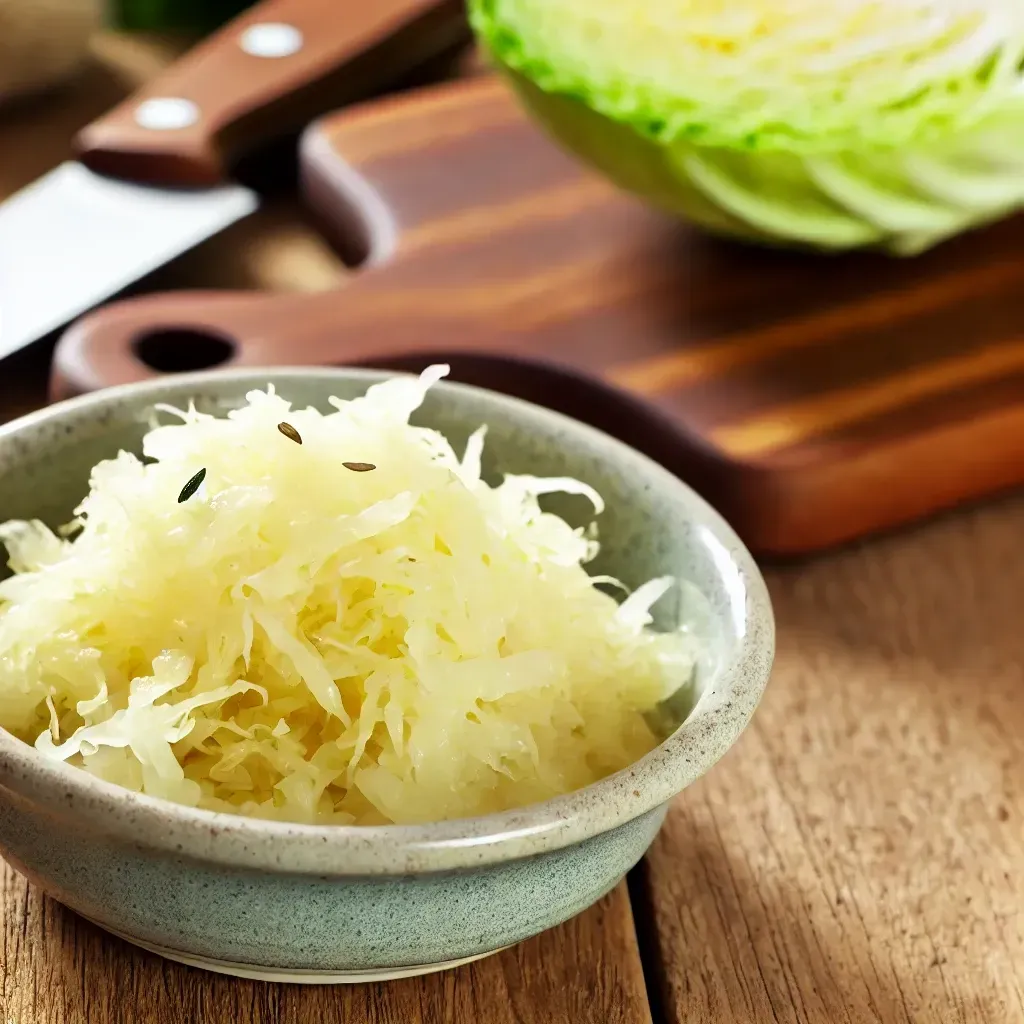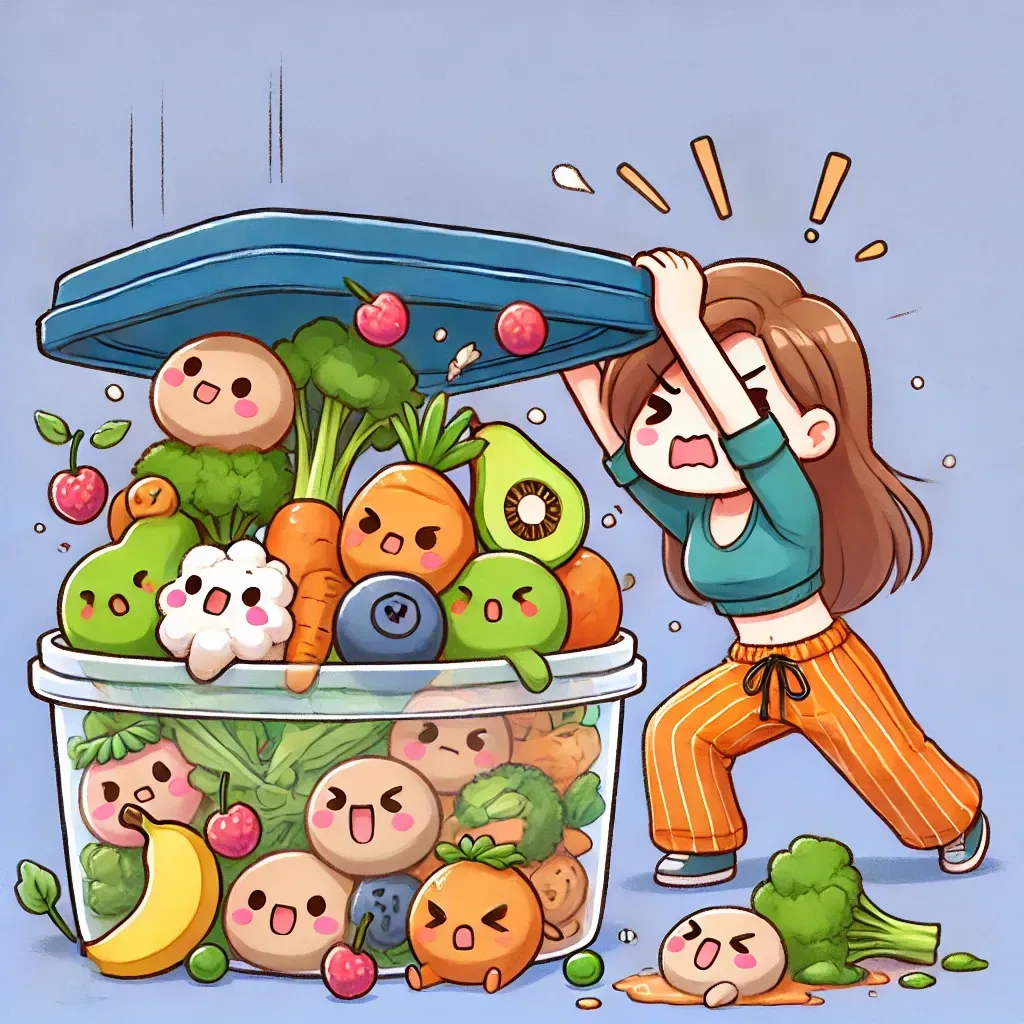Stress Part 1: Good, Bad, and How to Deal
The real effects of chronic stress, and what you can do about it.
Have you ever met a person who has never experienced stress? Don’t think too hard, the answer is no. Everyone has experienced stress in their life in some form or another. It is found in big life changing events such as a death in the family or a physical injury, or in everyday occurrences such as being late for work or an important meeting.
The body is really good at handling stressful situations. Its normal response is to produce a hormone called cortisol. Depending on the level of stress, the body will send out more or less cortisol in order to create a flight or fight response. Stress can be both good and bad for the body.
Good stress, or acute stress, is short-lived and can provide many benefits:
- Increased energy - Under acute stress, the HPA axis is activated which releases glucocorticoids, replenishing energy and assisting in cardiovascular function (gotta run faster if that bear is chasing you!).
- Strengthens the immune system - Bouts of acute stress can enhance the immune response over time.
- Increase stress immunity - With healthy stress-relieving practices (keep reading!), you can create a better physical and emotional response to stressful situations.
Bad stress is chronic stress due to emotional, dietary or pain/hidden inflammation issues. If the body is under chronic stress, bad things can happen:
- Increased blood pressure.
- Weakened immune system, making the body vulnerable to illness.
- Skin problems -- ever experience an acne explosion when you’re stressed? Well, it’s true! They go hand in hand, especially for men.
- Can lead to depression and/or anxiety due to an inability to cope with long-term stress.
Tips for Dealing with Stress:
- Know your stressors - Write them down! Once you actively think about and acknowledge the causes of your stress, you can begin to plan for them and maybe even avoid them altogether.
- Change what you are able - Some stressors are inevitable and unavoidable. You have to accept that you have no control over the actual event, but you might be able to control the parameters of it--how, where, and when. You have to have dinner with your mother-in-law so she can see the grandkids, but maybe you spend the time cooking a super fancy meal while she plays with them in their bedrooms.
- Practice saying “No” - A lot of stress is caused because we feel the need to over complicate our social calendars. This is especially true around holidays. You are human and you CANNOT do everything. Your health is what truly matters, so get good at saying “no” and enjoy the time to yourself.
- Be social - Wait, what? Didn’t I just say to not be social? Happy medium here, folks. Don’t fill every evening with activities, but don’t go 180 the other way and become a recluse either. It’s good to be in community with others--it actually helps your body release hormones that fight excessive levels of cortisol.
- Get up and move - Physical activity, even just going for a walk, can be a great stress-reliever. It gets your body moving and removes you physically, mentally and emotionally from stress, giving you a health break on many levels.
- Be thankful - Focus on the good things in your life. It’s so easy to get bogged down in the hard and yucky things, especially when there’s a lot of that going around. If you take a moment every day and find at least one thing you are thankful for or something that is going right in your life, you can actually feel the change in your mood.
This blog gave you some general information and is a bit on the light and fluffy side, but a great place to start. Stay tuned for the next few blogs in this series as we dig into stress and the effects it has on the body/mind if not properly managed.
Free E-book to get your energy back
I wrote an ebook about healing your mitochondria and gaining your energy back in 7 steps that I give away for free. The information in this ebook fits the bill for helping you overcome your health challenges such as what I've written about here in this blog post. Sign up and I'll send it to your inbox!
Ready to get your energy back?
SIGN UP NOW TO RECEIVE MY FREE "7 WAYS TO BRING BACK MY MOJO"
SIGN UPDon't Miss Out On More!

Heidi Toy FNTP
I help people all over the world heal by identifying and treating the root cause of their body imbalances. Through diet and nutrition, I guide them towards wholeness and balanced lives.
Heidi Toy Functional Medicine Blog

For many of us, our experience with food comes with some sort of baggage. Maybe you eat to cope with stress, anxiety or depression. Maybe you’ve grown up with value-words placed on food such as “junk” and “healthy,” and told you couldn’t eat the “good stuff” (brownies and ice cream) until you finished the “yucky stuff” (broccoli and lettuce). Or, even more serious, maybe you or a loved one has struggled or is struggling with an eating disorder. Food is amazing and life-giving. It can be used as a means to celebrate, socialize, or simply just provide fuel for the body. Our relationship with food shouldn’t be a difficult one, it should be an enjoyable one. A way to get to that healthy place in your relationship is to practice mindful eating. Mindfulness is a Buddhist concept of mediation that can help you recognize emotions and physical sensations present. Through mindful eating, you can learn to truly pay attention to your experiences, cravings and physical cues. The basics of mindful eating are: Eat slowly, without distraction. If you are eating with others, take a least five minutes at the start of the meal to enjoy the food on your plate before engaging in discussion. Pay attention to your body--are you still hungry, or are you getting full? Learn to distinguish between cravings and true hunger. Use all your senses when you sit down to a meal. Make an effort to notice how the food looks, smells, tastes, feels in your mouth, and sounds when you chew. Appreciate your food, who has prepared it (even if it’s you--what an accomplishment!), and where it comes from. Being mindful of your experience will help you slow down while eating. This can prevent overindulgence by making the act of eating intentional instead of automatic. It will also help you become aware of triggers that make you want to eat (are you truly hungry at 9pm every night when you sit down to watch that Netflix show, or do you just pour yourself a bowl of Chex Mix because that’s what you always do?). Knowing your triggers can give you time to process what’s truly going on and the ability to react properly.

Here are the essential functional medicine steps for Fifth Disease! If your child comes home with bright red cheeks that look like they’ve been “slapped,” chances are they may have fifth disease, also known as erythema infectiosum. This mild viral illness, caused by parvovirus B19, is common in kids and often spreads t

Successfully healing Adrenal Fatigue requires a holistic approach focussed on fixing the root cause of your problems and supporting your body through the healing process. This means we are going beyond just temporary symptom relief. We want you to return to vibrant health so you can get back to the active and healthy lifestyle that Adrenal Fatigue is holding you back from. (Adrenal Fatigue is more accurately known as HPA-D. Check out my blog HPA-D vs Adrenal Fatigue to learn more.)Again, we would be completing further testing to get to the root cause of your issues, but this protocol is a great starting point for healing. We focus on five essential areas for fast and long-term healing.

I want it! Sooooooo bad. But I want to lose weight, too. It’s not on my list of healthy, squeaky clean healing foods, but what will one little bite hurt? I can start again fresh and clean tomorrow. When brownies call your name and you are trying to break up with them, it is difficult to avoid the urge to want to indulge. But you know if you give in that you will berate yourself with guilt for the next 24-48 hours and the tsunami of eating everything off-plan will take over your life. One bite will start an avalanche... But you just can't stop thinking about the pan of brownies you made for the kids.

Did you know most people didn’t have refrigerators in their homes until well into the 1900’s? It wasn’t even invented for large scale commercial use until the mid 1800’s [1]. So how did people keep their milk cold and make their food last longer? Fermentation. It sounds like a gross concept, because we often associate fermentation with a bad odor, but foods like cheese, yogurt, sauerkraut and pickles are all fermented foods. And those aren’t gross, are they? Well, some might disagree with me about sauerkraut, but that’s beside the point. Fermented foods are digestive aids. Microscopic living organisms in fermented foods help extend the food’s shelf life, enhance flavor, and help the body absorb minerals. These organisms pre-digest the food, getting rid of harmful components, and create more vitamins and enzymes than the food began with. Enzyme-rich foods have many benefits including [2]: Increase digestibility of food we eat Boost immune system Increase alkalinity; neutralizing pH levels Provide a healthy balance of friendly flora in the gut (Learn more about your microbiome in my other blog posts ) Tone the colon and help with elimination Control cravings for unhealthier foods Eliminate toxins and undigested wastes in the body In the “old days,” people use to ferment all kinds of foods through pickling, canning, pasteurization and added salt. Nowadays, however, large scale fermentation has lost many of its nutritious benefits due to the need for speed to get the product on the shelf as fast as possible and as cheap as possible. The only true fermented foods you will find are sauerkraut, kombucha, yogurt and kefir, beans, wine and beer, some meats (such as salami and pastrami), legumes and nuts (such as tofu, soy sauce and miso), sourdough bread, and various kinds of vegetables [3]. Fun facts about sauerkraut: The Germans “stole” it from the Chinese! Sauerkraut (probably not labeled as such for the Chinese, but the same recipe) was one of the main foods for those who built the Great Wall of China. Genghis Khan brought it to Eastern Europe during an invasion. It also contains high levels of vitamin C, and sailors often took it on long journeys to prevent scurvy.

How can we best keep blood sugar stable? Do what our body is designed to do – use fat for energy. Our species did not survive the Ice Age because of vanilla coffee lattes and cheesecake. Throughout most of our history, we ate a diet that was likely 50-70 percent fat. Look at the old family photo albums, specifically pictures of people in the first half of the 1900s, before we had so many processed foods. You won’t see many fat people--in fact, most look darn skinny. If they lived on the farm, they ate lots of eggs, meat, milk, and vegetables out of their own backyards. “Diet foods” were non-existent. Heart disease was almost non-existent. Our metabolism is designed to work much better with fats better than with sugar. Fats provide the slow and steady fuel our body likes to use for energy. Think of fats as a slow-burning log on the fire. One log (i.e. one meal containing fats) lasts for hours. Starchy carbs, on the flip side, are like kindling. You constantly have to throw more twigs (chips, pasta, bagels) to keep the fire burning. The first step is to know your sugars by reading the labels, and then avoid said sugars as much as possible.








































































































